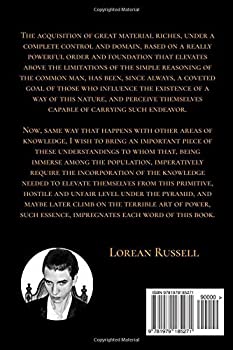
When did the illuminati begin ?
Adam Weishaupt (1748–1830) became teacher of Ordinance Law and down to earth reasoning at the College of Ingolstadt in 1773. He was the lone non-administrative teacher at a foundation run by Jesuits, whose request Pope Lenient XIV had broken up in 1773. The Jesuits of Ingolstadt, be that as it may, in any case held the tote strings and some force at the College, which they kept on seeing as their own. They made steady endeavors to baffle and ruin non-administrative staff, particularly when course material contained anything they viewed as liberal or Protestant. Weishaupt turned out to be profoundly against administrative, setting out to spread the standards of the Edification (Aufklärung) through some kind of mystery society of similar people.

Illuminati members
Discovering Freemasonry costly, and not open to his thoughts, he established his own general public which was to have an arrangement of positions or evaluations dependent on those in Freemasonry, yet with his own plan. His unique name for the new request was Bund der Perfektibilisten, or Agreement of Perfectibility (Perfectibilists); he later transformed it since it sounded excessively abnormal. On 1 May 1776, Weishaupt and four understudies framed the Perfectibilists, accepting the Owl of Minerva as their image. The individuals were to utilize false names inside the general public. Weishaupt became Spartacus. Law understudies Massenhausen, Bauhof, Merz and Sutor turned out to be individually Ajax, Agathon, Tiberius and Erasmus Roterodamus. Weishaupt later ousted Sutor for inactivity. In April 1778, the request turned into the Illuminatenorden, or Request of Illuminati, after Weishaupt had truly mulled over the name Honey bee request.
Massenhausen demonstrated at first the most dynamic in growing the general public. Fundamentally, while concentrating in Munich not long after the development of the request, he enrolled Xavier von Zwack, a previous understudy of Weishaupt toward the start of a huge authoritative profession. (At that point, he was responsible for the Bavarian Public Lottery.) Massenhausen’s eagerness before long turned into a responsibility according to Weishaupt, regularly bringing about endeavors to select inadmissible applicants. Afterward, his flighty love-life made him careless, and as Weishaupt passed control of the Munich gathering to Zwack, it turned out to be evident that Massenhausen had misused memberships and captured correspondence among Weishaupt and Zwack. In 1778, Massenhausen graduated and took a post external Bavaria, taking no further interest in the request. As of now, the request had an ostensible enrollment of twelve.
With the flight of Massenhausen, Zwack quickly put forth a concentrated effort to selecting more develop and significant enlisted people. Most valued by Weishaupt was Hertel, a beloved companion and a standard of the Munich Frauenkirche. Before the finish of summer 1778 the request had 27 individuals (actually checking Massenhausen) in 5 orders; Munich (Athens), Ingolstadt (Eleusis), Ravensberg (Sparta), Freysingen (Thebes), and Eichstaedt (Erzurum).
During this early period, the request had three evaluations of Fledgling, Minerval, and Enlightened Minerval, of which just the Minerval grade included a confounded service. In this the applicant was offered secret hints and a secret phrase. An arrangement of shared reconnaissance kept Weishaupt educated regarding the exercises and character of every one of his individuals, his top picks turning out to be individuals from the decision board, or Areopagus. A few amateurs were allowed to enroll, turning out to be Insinuants. Christians of good character were effectively looked for, with Jews and agnostics explicitly rejected, alongside ladies, priests, and individuals from other mystery social orders. Supported up-and-comers were rich, compliant, able to learn, and matured 18 or more.




